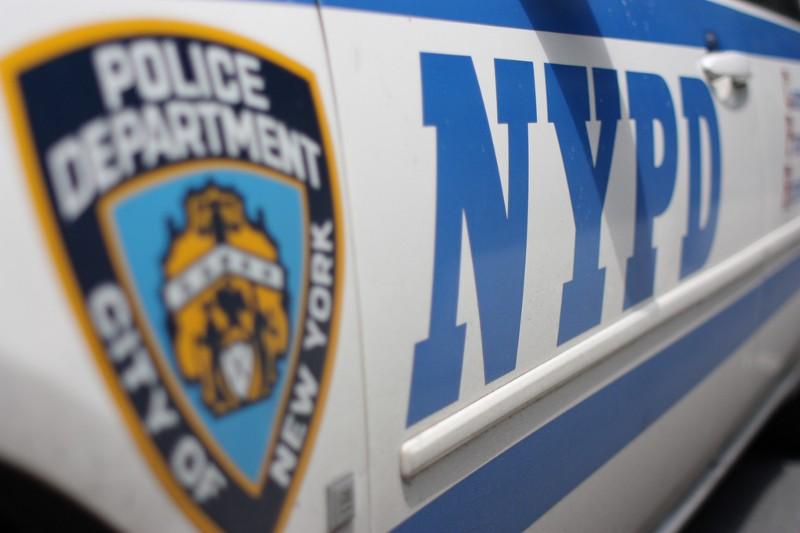NYPD is one delete button away from losing its civil forfeiture records
Criminal charges are absent from 85 percent of all forfeiture cases in the city.

On Tuesday, an attorney for New York City revealed that the New York Police Department, the biggest police department in the country, is operating without a backup storage system for its database of civil asset forfeitures. NYPD records of cash and property — reportedly worth millions — could therefore be lost with the drop of a hat.
Civil asset forfeiture is a process in which officers seize items of value — cash, cars, cell phones, jewelry, and more — from people who haven’t been convicted of a criminal offense. Police argue that the belongings in question are possibly related to a crime, or located in the proximity of people who are accused or suspected of committing a crime. But in many cases, the property owners haven’t been arrested or charged with a criminal offense, let alone convicted of one. Every state has its own policies that govern what can be seized and when, and dictates what owners must to do to obtain what was taken from them, but few people have the financial means or resources to fight for their valuables. Forfeiture ultimately occurs when ownership of seized assets is transferred to the law enforcement agencies who collected them. Sometimes people have no choice but to relinquish their belongings, because the items in question are dubbed evidence by law enforcement.
The process is widely known as policing for profit.
In 2014, an organization of public defenders called the Bronx Defenders submitted a Freedom of Information Law Request to better understand the NYPD’s civil asset forfeiture program. The organization asked for the value of seized property and cash, as well as a break-down of how the money gleaned from forfeited assets is ultimately distributed. The organization sued the NYPD two years later, stating the “NYPD did not disclose the records sought, claim specific exemptions to disclosure, or certify that, after making a diligent search, it had determined that it does not possess the requested records.” Representing the NYPD in court Tuesday, City Attorney Neil Giovanatti said there is no way for the police to pull that information, but also disclosed that there is no back-up system for the $25.5 million-dollar tool used to track property and evidence. That admission shocked Manhattan Supreme Court Judge Arlene Bluth, who called the absence of a plan B “insane” and worthy of an New York Times exposé.
“Judge Bluth is right to be skeptical about the city attorney’s the-dog-ate-my-homework excuse,” Lee McGrath, senior legislative counsel for the Institute for Justice, told In Justice Today. The Institute tracks state-level forfeiture trends and champions reform. “New York City’s Police Department is famous for its data-driven policing. It should apply the same rigor to its own operations, particularly when the conflict of interest from its keeping forfeited property is so obvious.”
So who would bare the brunt of such a major loss? Poor New Yorkers struggling to retrieve what is rightfully theirs would suffer, but “the truth stands to lose the most,” McGrath said. “It is likely that the data would reveal exactly how NYC police are using forfeiture.”
Law enforcement agencies justify civil forfeiture as a critical tool to combat large-scale drug trafficking and heavy hitters in the drug trade. In reality, the vast majority of seizures and forfeitures involve poor people of color who have no involvement with cartels or the global drug market. Police departments and district attorneys rack up anywhere from hundreds to millions of dollars in forfeiture profits by shaking down poor people of color for small dollar amounts and property — not big-time drug dealers shuffling large sums of money across state lines. Because they haven’t officially been charged with a crime, property owners aren’t entitled to an attorney who will help them fight for what is theirs. In general, they are also too poor to enlist the help of a private lawyer, and bureaucratic hurdles to retrieve property also benefit law enforcement.
Civil asset forfeiture in New York City, which hasn’t rewritten its administrative code that dictates forfeiture policy since 1881, is no exception. The NYPD’s forfeiture program is portrayed as a public safety imperative, but criminal charges are absent from 85 percent of all forfeiture cases in the city.
In 2016, the Bronx Defenders filed a class action lawsuit against the city. “We often represent low-income people whose phones and cash wages have been confiscated and spend months trying to get their money back after their case is over,” Molly Kovel, former legal director of the organization’s Civil Action Practice, said of the lawsuit. “For people without access to an attorney, the hurdles they face to get their property back are simply too high, and they often give up. We hope this case leads to much-needed reform.”
If forfeiture records are lost, so too is proof that the NYPD is policing for profit, McGrath says.
